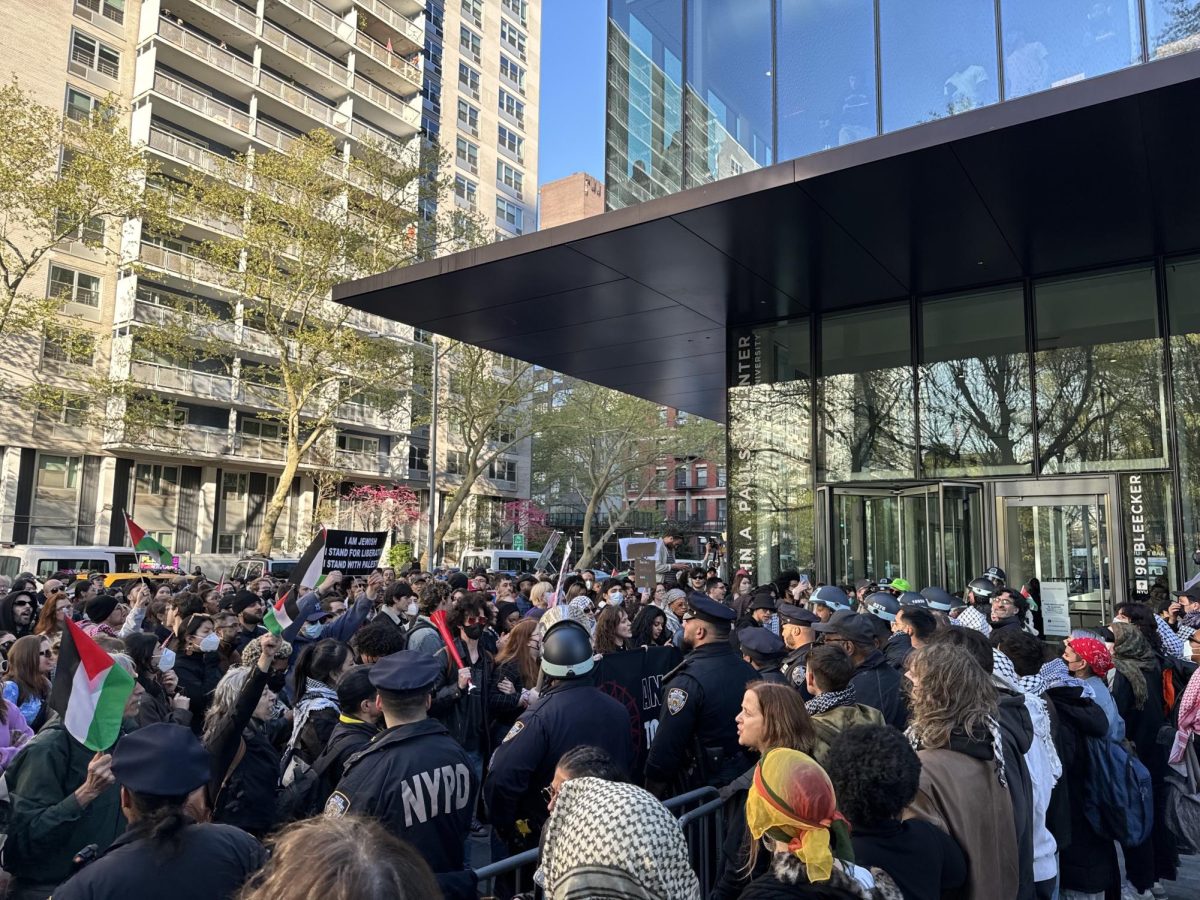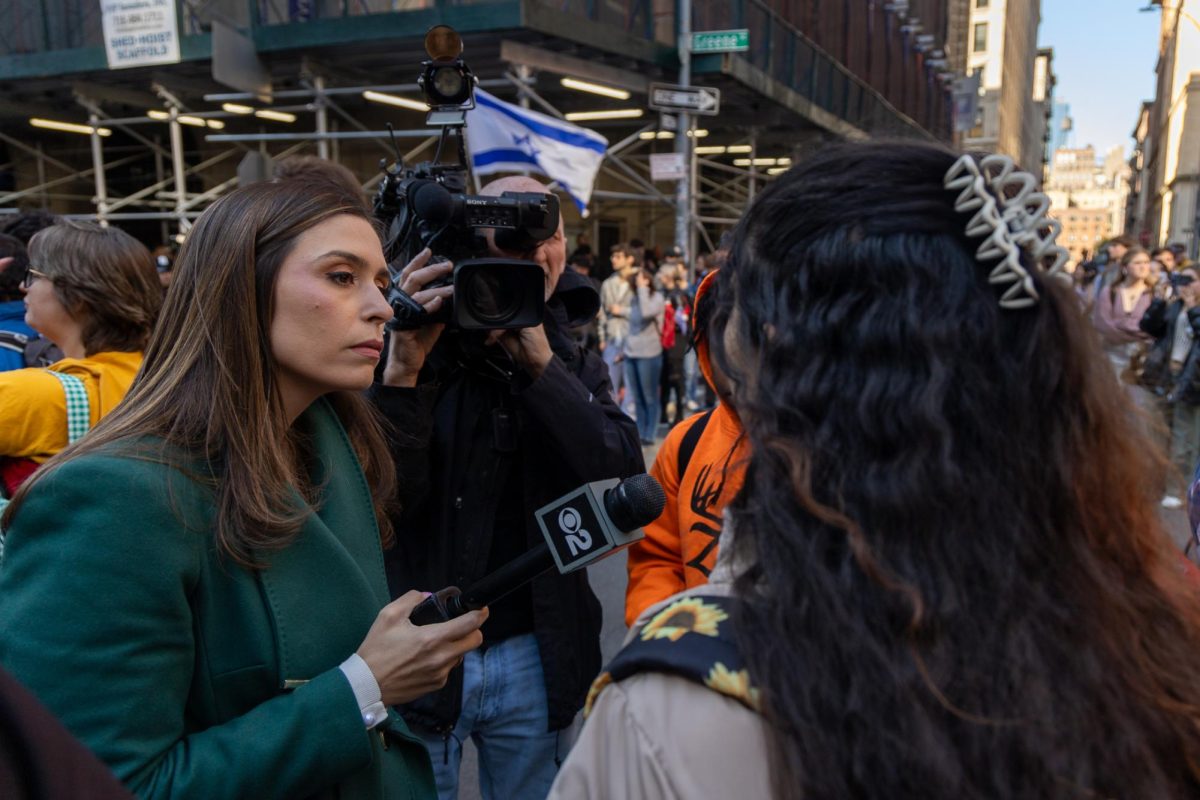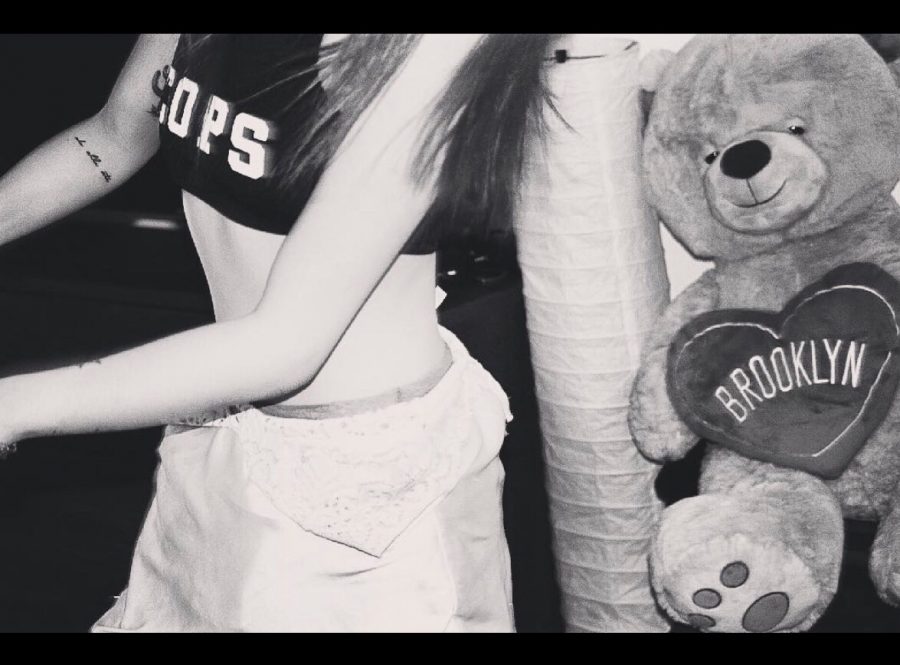Tattoos are beautiful, highly personal parts of people’s identities, but traditionally, they have been considered unpresentable and unprofessional by the working world. People get inked to make a statement, to immortalize memories or to hold onto something — whatever the reason, getting tattooed can be a lifelong contract.
When students with tattoos start to navigate the transition to work, they must confront this stigma and decide how they plan to handle such a personal part of their identities.
In the United States, convention demands a standardized professional image sans tattoos. However, 47 percent of millennials in the U.S. have at least one tattoo, a Harris Poll study shows, so industries should update accordingly. Unfortunately, the process of securing a job can be tricky for people with tattoos.
“I felt like the industry had changed enough that it wouldn’t affect me once I had the job,” said Tandon junior Carol Shlyakhova, who covers the three tattoos on her right arm by wearing a professional suit during formal interviews. “It is fine by me, as long as I don’t have to cover it every single day.”
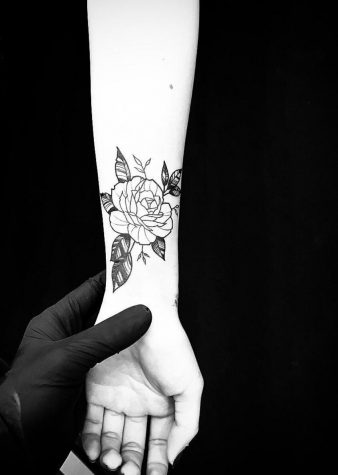
Unlike Shlyakhova’s practical tattoo covering method, Gallatin sophomore Rena Wei has a five-minute routine involving high-coverage foundation and powder to cover her lower-arm tattoo of a black triangle and lines that she designed. Since she works for a more conservative boss, she thinks that she should display a unified image with the rest of her co-workers.
“Tattoo is more like an identity,” Wei said. “There is a right time when you need to show it, and a time when you need to cover it up.”
Tattoos and the owner’s personality are strongly tied up together. Covering up a tattoo also covers a part of their personality as well.
Stern senior Rachel Lee used to cover the six fine line tattoos along her arms with long sleeves, even in the sweltering summers of New York City.
“It felt terrible,” Lee said. “It had to be done during that time, but I think I was not secure enough with them. I like tattoos, and if this is an expression of myself — my personality at the place I work — I don’t want to have cognitive dissonance. So I chose my career basically based off what would accept me.”
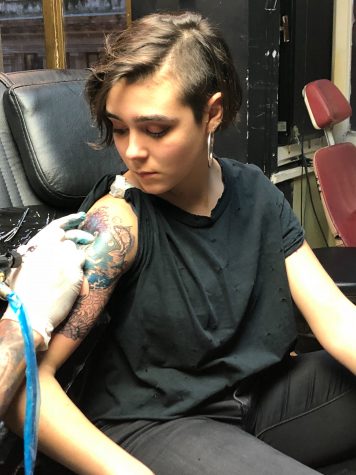
After graduation, Lee will be moving to Hawaii to work for a medical cannabis company.
Negative experiences regarding tattoos do not only emerge in the work setting; school life can also add up to future work concerns.
As Lee got her tattoos throughout her junior year, the infamous recruiting year at Stern, she was subjected to surprised yet traditionalist comments from her peers at Stern.
“Some peers were like ‘What are you doing?’” Lee said. “That was the negativity I always felt like I was dealing with.”
Shlyakhova, who is thinking of extending her tattoos into a full sleeve and also has script on her ribcage, had a similar experience in her geology class.
“I had a professor last semester, who would give career tips at the end of his class and always made comments about engineering being a conservative field,” Shlyakhova said. “He would say ‘Oh, if you have visible tattoos or piercings, no one is gonna like that.’ He was basically saying ‘Your employer is not going to like that and not hire you.’”
While the conventions will not change overnight, these students’ pride in their tattoos and their willingness to display them even in traditionally conservative fields indicates a change among people going into the job market. Tattoos are permanently a part of their lives, and they are not going to hide that aspect of their identities for anyone.
Email Elif Kesikbas at [email protected].

